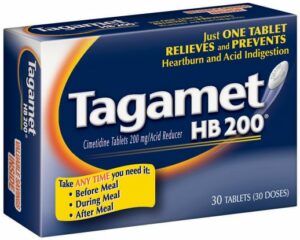Abstract:
The response of two androgen-responsive rat prostatic cancers (i.e., Dunning R-3327 H and G sublines) and one androgen-responsive human prostatic cancer (i.e., PC-82) to the 5 alpha-reductase inhibitor, SK&F 105657, was tested in vivo. SK&F 105657 was administered orally twice a day at a dose of 25 or 50 mg/kg/dose. The rat R-3327 G tumor and the human PC-82 tumor have a low to undetectable level of tissue 5 alpha-reductase activity and both responded to SK&F 105657 treatment with a reproducible inhibition of tumor growth. Associated with this antitumor effect was a major decrease (i.e., greater than 70%) in tissue dihydrotestosterone (DHT) content in both tumors. By contrast, the rat R-3327 H prostatic cancer has a much higher level of tissue 5 alpha-reductase activity, and neither tumor DHT content nor growth of the tumor was inhibited by treatment with SK&F 105657. Drug treatment of rats bearing R-3227 H tumors resulted in a similar reduction in the DHT content, wet weight, and DNA content of the ventral prostate as that produced in R-3327 G tumor-bearing rats which experienced an antitumor response. These results suggest that SK&F 105657 can produce antitumor effects if a substantial reduction in tissue DHT is achieved. Such reduction in tissue DHT, secondary to inhibition of the tissue 5 alpha-reductase enzyme, appears to be more difficult to achieve in tumors than in the normal prostate. In order to achieve such a DHT reduction in tumor tissue, prostatic cancers with low 5 alpha-reductase activity could be treated with SK&F 105657 on a dose regimen that lowers serum DHT to surgical castration levels, while concomitantly inhibiting the already low tumor tissue 5 alpha-reductase activity.
Author:
Lamb JC; Levy MA; Johnson RK; Isaacs JT
Address:
Oncology Center, Johns Hopkins University, School of Medicine, Baltimore, Maryland 21205.
Source:
Prostate, 1992, 21:1, 15-34
Language:
LA=ENG
Unique Identifier:
92350717





